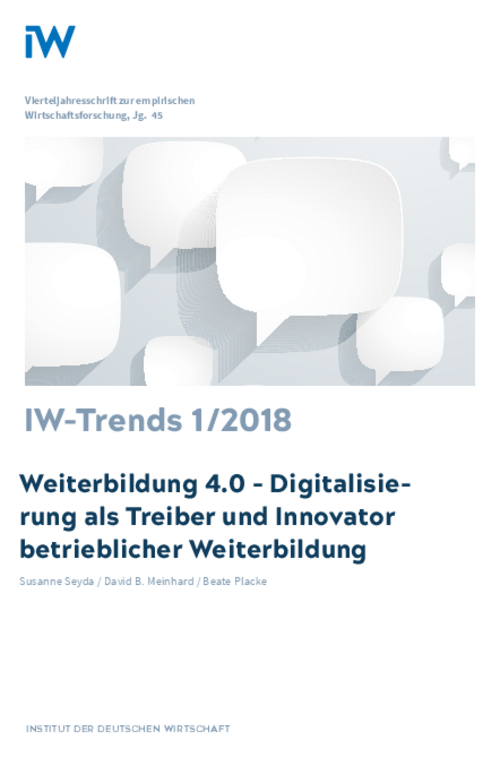Digitalization is leading to a growing need for training. Firms which have digitalized further are thus more likely to be active in further training and to invest more time and money in developing their workers’ skills.

Further Training 4.0: Digitalization as a Driver and Innovator of In-Service Training
IW-Trends

Digitalization is leading to a growing need for training. Firms which have digitalized further are thus more likely to be active in further training and to invest more time and money in developing their workers’ skills.
Moreover, as the use of digital technologies spreads within a company, staff acquire more and more IT skills. However, non-digital fields of competence, such as professional expertise and social and communication skills have not lost their relevance. Digitalization not only adds to the range of further training required, but also offers new ways of learning, which 84 per cent of those enterprises which offer further training already exploit. Indeed, digitalized companies make more frequent use of digital learning methods than other firms, highlighting the interaction between increasing training needs and new opportunities for knowledge transfer. According to companies, the most important motive for the use of digital learning offerings is that they can easily be integrated into the normal working day.

Susanne Seyda / David B. Meinhard / Beate Placke: Weiterbildung 4.0 – Digitalisierung als Treiber und Innovator betrieblicher Weiterbildung
IW-Trends

More on the topic

Further training needs of the automotive industry in transformation
Due to the ecological and digital transformation, significant parts of the German economy, particularly the industrial sector, are currently undergoing a transformation. This development also extends to the automotive sector, which occupies a vital position in ...
IW
The Increasing Importance of Literacy Courses and Further Training for the Low-skilled
Digitalisation and the demographic transition are presenting companies with ever new challenges. This puts pressure on firms to be in a process of constant change, a phenomenon reflected in the growing demands they put on their low-skilled employees.
IW